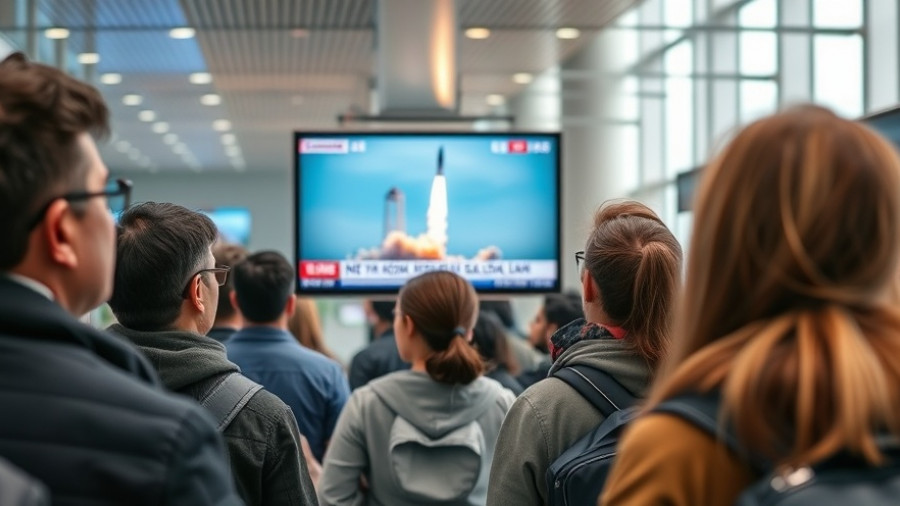
North Korea's Bold Missile Tests Precede Key Diplomatic Talks
As the world turns its attention toward the Asia-Pacific region, North Korea has staged a provocative show of military might by test-firing ballistic missiles just ahead of U.S. President Donald Trump's anticipated visit to South Korea. This is the first time in five months that North Korea has conducted such tests, and it raises alarm yet again about the nation’s commitment to maintaining its controversial missile program.
Contextualizing the Missile Tests
On October 21, North Korea launched multiple short-range ballistic missiles from an area south of its capital, Pyongyang. Reports indicate that these missiles traveled approximately 350 kilometers (220 miles) in a northeastern direction, but notably did not land in the sea, marking a shift in how the nation approaches its missile tests. The South Korean military, maintaining a vigilant stance, expressed readiness to counter any provocations, emphasizing its strong alliance with the United States.
Implications for U.S.-North Korea Relations
This recent display of military capability comes as tensions linger from the breakdown of denuclearization talks between Washington and Pyongyang in 2019. Analysts suggest that North Korea's leader, Kim Jong Un, may stage such tests to assert his country's status as a nuclear power, especially as the Asia-Pacific Economic Cooperation (APEC) summit approaches. Such actions could be seen as a strategic move to gain leverage in future negotiations regarding sanctions relief.
What This Means for Regional Security
Leaders across East Asia are closely monitoring these developments. Japan’s Prime Minister Sanae Takaichi quickly reassured the public that there is no immediate threat to Japan’s national security, confirming that the missiles did not reach Japan's territorial waters. Further, Japan is maintaining open lines of communication with both the U.S. and South Korea, sharing real-time missile warning data to enhance regional safety.
Historical Context of North Korean Missile Tests
Nuclear-armed North Korea has continuously advanced its missile capabilities over the years, often in defiance of international sanctions. This latest test is particularly impactful given its timing right before key diplomatic engagements, reminiscent of Kim’s past strategies of military displays during crucial talks with global leaders.
The Broader Picture: International Response and Future Predications
Experts contend that Kim Jong Un’s recent missile actions may be directly tied to pressures from the West, especially with the ongoing sanctions imposed by the U.S. Leaders anticipate that more missile tests could happen during diplomatic events, indicating a strong message of resilience against sanctions. The world will be watching closely to see if Trump's diplomatic efforts and the presence of other international leaders will have any effect on North Korea’s military ambitions.
Decisions Voters Can Make with This Information
For those living in Central Florida and other regions, keeping abreast of such international developments is crucial. Understanding these dynamics can help local leaders and community stakeholders frame approaches to public safety—especially with possible impacts of international relations on local contexts. Engaging with advocacy groups or participating in civic discussions can empower communities to voice their opinions regarding U.S. foreign policy.
Why It Matters to You
The actions of North Korea, while occurring far from U.S. shores, resonate deeply due to their implications for national and global stability. As citizens, it’s essential to remain informed and express our concerns regarding our nation's foreign policy strategies. Rising tensions necessitate increased awareness of geopolitical risks, promoting commonality among communities regarding peace, diplomacy, and mutual understanding.
The ongoing geopolitical climate creates a complex landscape where even civilians must engage with international affairs, prompting informed discussions and advocacy for peaceful resolution strategies. Pay attention to this evolving situation and consider how you, as a community member, can contribute to a future where diplomacy prevails over aggression.
 Add Row
Add Row  Add
Add 




Write A Comment